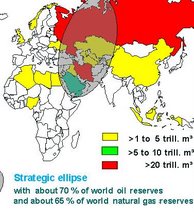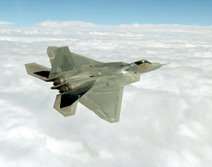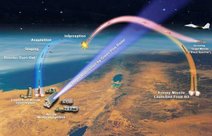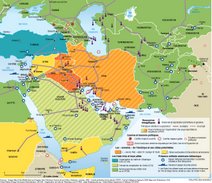 http://www.revisionisthistory.org/talmudtruth.html
http://www.revisionisthistory.org/talmudtruth.htmlThe "Special Relationship" Comes Home
Israelization of the United States....and the ugly Americanization of ISRAEL....
by M. SHAHID ALAM
The images of the American armada plowing through the deserts of Iraq, bombing military and civilian targets, laying siege to Iraqi cities, targeting Iraqi leaders, shooting civilians, blinded by sandstorms, stalled, ambushed, shocked by the Iraqi resistance, facing suicide attacks, suggests an eerie but inescapable comparison. Is this America's West Bank? Is this the Israelization of United States--heading to its logical conclusion?
Most Americans have been taught by their captive media to interpret what happens today in the Middle East in terms of what happened yesterday. The clock of history in this region always starts with the most recent "suicide" attack mounted by Palestinians against "peaceful," "innocent" Israeli "civilians." If, somehow, these Americans could be persuaded to take the long view, they might begin to understand that the war against Iraq is perhaps the culmination of a process that had been long in the making: the Israelization of United States.
The founding fathers of Zionism understood clearly that their colonial project had no chance of succeeding without the patronage of a great power. The Zionists tried but failed to persuade the Ottoman Caliph to open up Palestine to Jewish colonization; he declined their inducements. Then, the British found themselves in a tight spot in the midst of World War I. They sought Jewish help in accelerating US entry into the war. In return for their help, the Zionists got the vital support they wanted. In the infamous Balfour Declaration of 1917, the British promised "to use their best endeavour" (what charming language) to facilitate the creation of a "national home for the Jewish people" in Palestine.
The British occupied Palestine in December 1917 and immediately opened it up to Jewish immigration. At the end of the war, according to the terms of a secret agreement, the British and French vivisected the Arab territories of the Ottoman Empire to splinter Arab unity. Syria was carved up four ways: Lebanon, to create a Maronite-dominated state; Jordan, to reward one of the sons of the collaborating Sharif Hussein; a French-controlled Syria; and the British mandate of Palestine, the future Israel. Soon, the Jews of Europe came pouring into British-occupied Palestine, setting up a parallel government with their own military.
The die was cast for the Palestinians. They were no match for the combined Zionist and British forces; and there was no help from weak Arab "states," hamstrung by imperialist control. Still the Palestinians fought to save their homeland. When the British stopped the Jewish im-migration, the Zionists mounted a terrorist campaign. The British lost nerve and passed the buck to the United Nations, or, effectively, to the United States, which now dominated that august body. Motivated in part by anti-Semitism and still strong Christian sentiments, but also swayed by a determined Jewish campaign, United States pushed a partition plan that strongly favored the Jews. The Palestinians rejected the partition plan. They and other Arabs mounted a feeble resistance, but were routed by the Zionists. Close to a million Palestinians were expelled from their homes, and never allowed to return.
It should be understood that the creation of Israel did not--at least in the early years--advance America's strategic interests. At the time, United States and Britain exercised firm--and very profitable--control over the oil resources of the Gulf through a clutch of weak and pliant monarchies. The emergence of radical governments in Egypt in 1952, and, later, Syria, only deepened the dependence of the oil-rich Arab monarchies on Western powers. When the Iranian nationalists sought to nationalize their oil in 1952, the Americans and British organized a coup, and reinstated the deposed King. In other words, the British and Americans were firmly in control of the region--without any help from Israel. A "special relationship" with the Israeli interloper could only undermine this control by inflaming Arab nationalist sentiments.
The record of American assistance to Israel shows that the special re-lationship did not develop until the late 1960s. US aid flows to Israel remained well below $100 million annually until 1965, and, more importantly, very little of this was for military hardware. The aid flows doubled in 1966, increased six fold in 1971, and five fold again in 1974 when it rose to $2.6 billion, going up to $5 billion in more recent years. Further, this aid was disbursed mostly in the form of grants, and nearly all of it was spent on military hardware. Indeed, these terms indicate a very "special relationship," not available to any other country.
Most commentators, especially those on the left, attribute the emer-gence of this special relationship to Israel's stunning 1967 victory over Egypt, Syria and Jordan. They argue that this victory convinced the US that Israel could serve as a vital ally and a counterpoise to Arab nationalism and Soviet ambitions in the region. But this explanation is both one-sided and simplistic. It completely ignores the part Israel played in initiating this relationship, deepening it, and making it irreversible.
If the special relationship was the product of an Israeli victory over Arabs, US should have embraced Israel as a vital ally after its first victory over Arab armies in 1948, or after 1956 when it seized the entire Sinai in a lightning strike. Why did US have to wait until 1967, after Israel had humiliated the leading nationalist states and Soviet allies in the region. Presumably, the Arab defeat should have reduced Israel's usefulness to the US. In addition, the doubling of American aid flows to Israel in 1966 as well as the cover-up of the 1967 Israeli attack on the USS Liberty--a reconnaissance ship--off the Sinai coast, indicate that a special relationship had begun to develop well before the 1967 war.
If America's special relationship with Israel was slow to develop, in large part, this was because Israel was doing quite well without it. At least in the 1950s, the British were still the paramount power in the Persian Gulf, a position it would yield only slowly to United States. In addition, Israel entered into a very fruitful military relationship with France, which supplied not only heavy arms and combat aircraft but collaborated on its nuclear weapons program. Israel was quite confident of its military superiority over its Arab adversaries even in these early years. Apparently, the British and the French too knew about this, since they persuaded Israel to invade Sinai in 1956 as part of their campaign to regain control of the Suez canal. This confidence was well-placed. Within a few days, Israel had taken the Sinai from the Egyptians.
If the war of 1967 produced stunning Israeli victories, it also drove Israel to look for a new partner. First, since it had started the war against French advice, President De Gaulle suspended all arms shipments to Israel. In order to make good the loss, Israel turned to the US, which had the added advantage of being the world leader in military technology. At the same time, Egypt and Syria would seek to rebuild their decimated military by pursuing an even closer relationship with Soviet Union. Given the logic of the Cold War, this forced the US to develop Israel as a counterweight against the growing Soviet influence in the region. The conditions were now ripe for the growth of a special relationship between Israel and the US.
This Israeli decision to realign itself with the US was pregnant with consequences. Israel would have to persuade Americans that their vital interests in the region--protecting their oil supplies, rolling back Arab nationalism, and containing Soviet influence--could be best served by building up Israel, militarily and economically, as the regional hegemon. This would not be an easy task since American support for Israel was certain to alienate the Arab world. And Americans knew this.
The Israelis undertook this task with seriousness. In casting itself as the regional hegemon, Israel was playing a high-risk, high-stakes game that could succeed only if it was supported and financed by the US. Also, Israel could not build a new strategy on a special relationship that Americans would be free to reverse. In order to make this an enduring relationship, Israel would bolster it at two levels.
At the grass-roots level, it worked to build a strong, emotional American identification with Israel. This was pursued in a variety of ways. Most importantly, American consciousness was saturated with guilt over Jewish suffering. In his book, The Holocaust Industry, Norman Finkelstein has shown that the sacralization of the holocaust began only after 1967, and how the guilt this produced has been used to silence Israel's critics. Americans now feared that criticism of Israel would be seen as anti-Semitism. As a result, few dared to criticize Israel in public.
Israel was also portrayed as a democracy, constantly under attack from Palestinians and Arabs. Two explanations of Arab hatred of Israel were offered. It was a species of anti-Semitism. Like its older European cousin, Arab anti-Semitism was unprovoked; it had no causes. Alternatively, unable to modernize, the Arabs hated Israel because it was the only country in the region that was both free and prosperous.
At the political level, organized American Jewry amplified its efforts to increase the pro-Israeli bias of American politics. While individual Jews continued to play a distinguished role in liberal and left causes, nearly all the major Jewish organizations now worked feverishly to put pressure on the media, the Congress and the Presidency to offer unconditional support to Israel. In several states, Jewish money, votes and media tilted elections towards the most pro-Israeli candidates. In addition, Jewish organizations worked more effectively to defeat candidates who took positions even mildly critical of Israel. This is documented in Paul Findley's book, They Dare to Speak Out.
Once Israel's special relationship with the US was in place, it would acquire its own logic of success. This logic worked through several channels. First, as Jewish organizations worked to shape US policies towards Israel, they would improve their tactics, and their initial victories would bring more Jewish support and, in time, more success. This logic even worked to turn temporary reverses to Israel's advantage. People who argue that the US special relationship with Israel was prompted by its victory in 1967 should also note that its near-defeat in 1973 led, the following year, to a more than five-fold increase in the US aid package to Israel to $2.6 billion. Egypt took this message to heart, deciding that it would be futile to challenge this special relationship any further. In 1978, it signed a separate peace with Israel, after US promised to sweeten the deal with an annual aid package of $2 billion. It's chief rival eliminated, Israel's hegemony over the Middle East was now more secure.
Iran's Islamist revolution in 1979 added new strength to Israel's special relationship with the US. The overthrow of the Iranian monarchy, the second pillar of American hegemony in the Middle East, increased Israel's leverage over US policies. In addition, the accession to power of Islamists raised the bogey of the Islamic threat to the West. The Israeli lobby, especially its Middle East experts, had been making the case for some time that the Islamist movements in the Middle East opposed the US per se, and not merely its policies towards Israel. The alarm caused by the Iranian Revolution gave strength to this interpretation.
The end of the Cold War in 1990 stripped the special relationship of its old rationale. Israel would now have to invent a new one to continue to sell itself as a strategic asset. It would now market itself as the barrier, the break-water, against the rising tide of Islamic fundamentalism. For many years, the chief opposition to the corrupt and repressive regimes in the Arab world, whether dictatorships or monarchies, had taken Islamist forms. Pro-Israeli apologists in the media and academia--mostly Jewish neoconservatives and Middle East experts--argued that the West now faced a new Islamic threat, global in its scope, which hated the freedoms, secular values and prosperity of the West. Bernard Lewis, the "doyen" of Middle East experts and a passionate Zionist, solemnly intoned in 1993 that this was nothing less than a "clash of civilizations." This was a clever move, but also a necessary one, to convert Israel's conflict with the Arabs into a new Crusade, the war of the West (read: United States) against Islam. It was clever move also because it had support from Christian fundamentalists, who were now a strong force in the Republican party.
The new Crusaders worked in tandem with Islamic extremists in the al-Qaida camp who also wanted to provoke a war between Islam and the US. Every time Osama's men struck at American targets, it was exploited by the pro-Israeli lobby to promote the Clash thesis. When the nineteen hijackers struck on September 11, 2001, they could not have chosen a better time. The man at America's helm was a born-again Christian, an isolationist, elected by right-wing Christians, with a cabinet that took its advice on foreign policy mostly from Jewish neoconservatives. The neoconservative's plan for a new Crusade had been ready long before 9-11. They had the President's ears after 9-11, and the President bought into their plan.
In no time, George Bush had been converted into a new Crusader. He described Ariel Sharon as a "man of peace," after embracing every one of his extremist positions on the Palestinians: reoccupation of West Bank, repudiation of Oslo, removal of Arafat, and dismantling of the Palestinian authority. He laid out his binary doctrine--you are with us or against-us--and prepared for pre-emptive wars against the "axis of evil."
The new Crusade is now underway. The world's only superpower, commanding one-third of the world's output, and nearly one-half its military expenditure, has entered Iraq to effect "regime-change," to bring democracy to a people it has emasculated with bombs and sanctions for twelve years. In its new Crusade, United States stands at the head of a numerous "coalition of the willing," now including forty-five countries. But Israel is missing from this long list, even though a team of colonial administrators, handpicked by Paul Wolfowtz, has already arrived in Kuwait City to take over Baghdad. That is a trick no magician could imitate. The Israelization of the United States is complete....
The Israelization of America |
|
|
| US officials recently announced the somewhat jarring news that Israeli security forces will be training American soldiers in the techniques of urban warfare. Apparently Israel's illegal thirty-five year occupation of Palestine has enabled it to perfect tactics that our troops will need in a 'possible' war on Iraq. Over the past half century, Israel's organized terror against Palestinian civilians has moved from the relatively secret operations of special Israeli army and paramilitary units to globally televised depredations wrought with helicopter gunships, state-of-the-art tanks, and F-16 fighters. In the process, massacres like those perpetrated in the old days by Israeli army units at Deir Yassin and Qibya have been dwarfed, in terms of casualties, scope, and property damage, by today's daily and indiscriminate destruction in the Occupied Palestinian Territories. Crimes that Israel once felt compelled to hide from the world are now on full display, vigorously defended by the Israeli government. Israel has long been criticized for taking pre-emptive military action against its perceived enemies. Two well-known examples are its surprise attack against a nearly-completed Iraqi nuclear power plant and its protracted, illegal and bloody occupation of southern Lebanon. Despite worldwide criticism of these and many other blatant violations of international law, Israel continued, and continues, undaunted. Our politicians have also learned much by example from our close and "special" relationship with the government of Israel. For decades, our pols have used cant, dissimulation and fraud to excuse Israel's most egregious crimes. In the process, much has been learned about how to turn acts of wanton destruction into a noble defense of freedom. Israel's willingness to keep 'pushing the envelope' of state terror has been invaluable in this process, training both American pols and media in the arts of propaganda required to justify ever-larger crimes. Following the tragedy of 9/11, Israel immediately recast its thirty-five-year occupation of Palestine as an essential front in the "war on terror". To extract maximum political advantage from our loss and grief, Israeli politicians like Ariel Sharon suggested, with typical touches of arrogance and self-satisfaction, that, finally, Americans know how Israelis have felt for years. We face a common and implacable enemy, they lectured us, leaving unspoken the message that we Americans had better develop some backbone and put our shoulder to the anti-terror wheel. Just as Israel depends on billions of dollars annually from a compliant US government to maintain its military occupation and indifference to UN resolutions and international law, America's power axis also thrives on a steady flow of wealth from a similarly remote and supine source – the American people. And just as Israel makes it a point to occasionally disobey the orders of its US sponsors, so American politicians at the pinnacle of power pointedly disregard the many voices of the people that call for justice and peace. During consideration of the recent Congressional resolution supporting war on Iraq, Democracy Now reported that citizen messages to Congressional offices of both chambers and both sides of the aisle were running 10 to 1 against the resolution. Naturally, both the House and Senate passed the measure by overwhelming margins. The reply to the American public was clear; "We watch our push-polls. Pay your taxes and shut up." Even within its own pre-1967 borders, Israel's human rights record is abysmal. Twenty percent of Israel's population is now comprised of non-Jewish Arabs who, by law, are systematically rendered second-class citizens in their own homeland. Special hells in Israel's complex legal and social caste system are reserved for Bedouins and African Jews. Israel's stubborn insistence on the primacy of the "Jewish state" and its institutionalized discrimination against non-Jews have set poor examples for America, where Israel is routinely hailed as a shining example of "Western democracy". We cannot quantify the debasing effects of this mass fantasy, but we can see that while America's own system of minority repression becomes increasingly severe, the public is told that pride in America's "liberty and equality for all" is at an all-time high. Israel's long war of attrition against the Palestinians has proven to America's power elite that it is possible to indefinitely occupy the land of another people, even in the face of nearly global opposition – if you're backed by enough raw power. The West Bank and the Gaza Strip constitute a kind of open-air laboratory and lecture hall, in which Israel demonstrates the advantages of occupation to its dutiful American pupil. These advantages include a dirt-cheap labor pool that can be turned on and off at will, the ability to emasculate and/or decapitate any effort at self-rule within the occupied lands, the utility of occupation as an object lesson and divisive thorn-in-the-side of neighboring enemies, and so on. Israel has also demonstrated the usefulness of sustained occupation for increasing a nation's overall military might. The constant war-footing, and the need for violent repression of a restive and disenfranchised people, create never-ending opportunities for the purchase and use of the latest military equipment, and for the containment of domestic politics. While American power has in general been a very attentive student of Israeli policy and practice, there is one crucial lesson at the back of Israel's textbook that remains unlearned: Israel's approach will never create peace or achieve a just solution. Of course, that suits its purposes. The point of Israeli strategy is to grind the Palestinians into dust until they just blow away, and the last shreds of Palestine can be swept up into Greater Israel, always the goal of the military Zionists and their Laborite alter egos. |






























